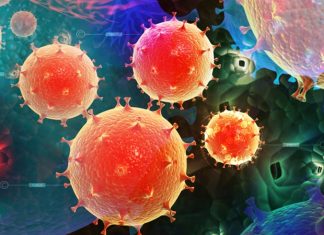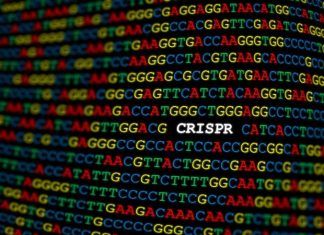Depleting SIRPα-deficient in macrophages activate tumor antigen-specific cytotoxic T cells
In a study that will be published in Nature Communications on May 28, 2021, a research team led by Dr. Yuan Liu from Georgia State University reports that intratumoral SIRPα-deficient macrophages activate tumor antigen-specific...
New tool can help researchers to better understand the metabolism of microorganisms
Researchers from University of California San Diego, as part of a large collaboration with scientists around the world, have developed a new search tool to help researchers better understand the metabolism of microorganisms. Microbes...
Geraniol alleviates cognitive decline in D-galactose-induced aging mice
A new research paper was published in Aging (listed by MEDLINE/PubMed as "Aging (Albany NY)" and "Aging-US" by Web of Science) Volume 16, Issue 6, entitled, "Geraniol attenuates oxidative stress and neuroinflammation-mediated cognitive impairment...
Viral host jumps: Humans to animals transmission more common than previously thought
In a recent study published in Nature Ecology & Evolution, researchers harnessed publicly available viral genomic data, using a comprehensive suite of network and phylogenetic analyses to investigate the evolutionary mechanisms underpinning recent viral...
UofL researchers are unmasking an old foe’s tricks to thwart new diseases
When the body encounters bacteria, viruses or harmful substances, its innate immune cells, neutrophils, assemble at the site to combat the invader.
Credit: UofL photo.
When the body encounters bacteria, viruses or harmful substances, its innate...
When bad cells go good: Harnessing cellular cannibalism for cancer treatment
(Santa Barbara, Calif.) — Scientists have solved a cellular murder mystery nearly 25 years after the case went cold. Following a trail of evidence from fruit flies to mice to humans revealed that cannibalistic...
New blood test could detect ovarian cancer early, improve treatment
High-grade serous ovarian carcinoma (HGSOC) is the most common type of ovarian cancer. It is also the most lethal form, in part because clinicians do not have effective ways to screen women for it...
Zoonotic spillover safeguarding: computationally designed antigen targets range of coronaviruses
In a recent study published in Nature Biomedical Engineering, researchers used an interdisciplinary approach incorporating phylogenetics, 3D protein modeling, and plasmid design to identify and computationally design an antigen representing the core of most...
Study highlights the potential of cell replacement therapy for Huntington’s disease
New research appearing in the journal Nature Biotechnology answers important questions about the viability of treatments that seek to replace diseased and aged cells in the central nervous system with healthy ones. Its findings...
New CRISPR-based tool can snip out faulty genes and replace them with new ones
Building on the CRISPR gene-editing system, MIT researchers have designed a new tool that can snip out faulty genes and replace them with new ones, in a safer and more efficient way.
Using this system,...
















